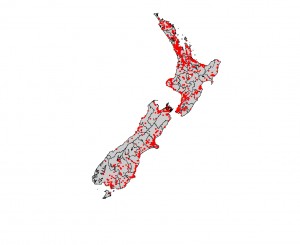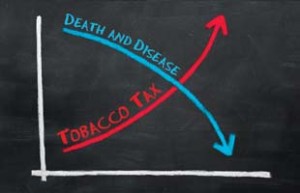Dr Amber L. Pearson, Frederieke S. van der Deen, Associate Professor Nick Wilson

Figure 1. Map of current tobacco retailers in New Zealand (n=6000)
How can we achieve the 2025 goal of a smokefree nation? The best approach to this tobacco endgame, as it is often called, is unclear. Options include ongoing tobacco tax rises, a sinking lid on tobacco imports, denicotinisation of tobacco products, etc. In this blog we consider the option of reducing the number of tobacco retail outlets – leaning on a study we have just published. There are no observational studies, let alone randomised trials, of nation-wide retail outlet reductions. One way to address this ‘evidence gap’ is through modelling studies that anticipate how smoking behaviour may change due to increasing cost of tobacco through travel time and costs – an economic methodology. There is a lot of uncertainty around our results, but they do suggest that an outlet reduction strategy would probably help nudge the country towards the NZ Government’s smokefree goal. But our modelling also suggests tobacco outlet reduction is far from a panacea – under the assumptions we used. Therefore, outlet reduction would probably have to be but one component of an overall programme of activity to achieve the 2025 goal.
Continue reading →





